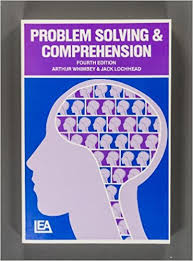Kim is marginally faster than I. Jim is a tad slower. Tim and I train at the same pace. No, this is not one of those annoying aptitude test questions (If Tim is faster than Jim but slower than Kim and a train leaves Philadelphia at 10:00 am…) Nor is it the case that only people whose names rhyme with “dim” belong to our sweaty group.

On a swampy Saturday morning, Kim will be a step ahead. If Tim and I can keep up without bursting into flames, Kim will keep zipping along. But if Tim and I fall a few feet behind, Kim will adjust her pace to be aligned with us. We are continually monitoring one another, configuring our pace accordingly. We are in touch, attuned to one another. We constantly check in, our feet continuously sending, receiving, and processing intel.

My running group and I have been slogging through South Florida since 1983. We have put in enough miles to have circled the globe—had we been more organized. We are still together because we:

- Find a pace that works for everyone.
- Stay together. Even if Kim is a little faster and Jim a bit slower.
- Wait for one another. There’s always a reason to walk, chat, and let slower folks catch up.
- Seldom talk about our own accomplishments. Instead we focus on helping someone else get faster, achieve goals, and stay healthy.
- Maximize the experience for everyone. The Monday morningrun recently moved up from 6:00 am to 5:30 am so the parents of school-age children can get home and get the kids to school on time.
- Split the Saturday run into a 5:45 amstart AND a 6:30 am start so that runners can do three, seven, or ten miles.
- Acknowledge that none of us is going to win an Olympic medal anytime soon so we might as well be encouraging and supportive.
- Ignore questions of politics and faith. Nobody is going to convince anybody.
- Have breakfast together after the run.

Could there be a more apt metaphor for a healthy family?

Here’s another one: We are climbing a dangerous, icy mountain. Each member of the family has a backpack laden with gear. It does not matter which member carries the rope, the matches, the food, the tent. Either we all make it safely to the top and back down or we all freeze to death or starve to death or fall to our deaths. The analogy for family is clear: “we must hang together, or we will be pretty sure to hang separately.” We can snipe at each other about who has the heavier pack; we can refuse to share; we can stand there in the snow refusing to move forward; and we can all die. The alternative–shouldering our loads, working together, communicating and cooperating–is critical for survival.

Some directed advice: In every parent-child interaction across ages and stages, be mindful. The unspoken goal of every communication should be: “we are in this together. We can figure it out.”

Parents have to understand that, once you have a kid, it’s no longer about you. It’s time to focus on the next generation. Help out. Model caring. Endeavor to figure out why your Kid is fussing, misbehaving, or—gasp!—acting like a child. Try to be helpful. Solve the puzzle.

Figuring out what your child needs is not the same as giving in to her every want. Back to running: I want to lie down in the middle of the road or go back home to bed. (What part of 5:30 a.m. did you not understand?) But I need to stay with my group, get healthful exercise, keep off the extra pounds, be part of something bigger than myself.

My child may want to breakfast on pizza and ice cream, but she needs healthy calories. My child may want violent video games, but she needs to read and study. My child may want to take opioids and have unprotected sex with multiple partners, but—well, you get the idea.

Our job as loving parents is to constantly monitor that which our children need while politely acknowledging—then over-looking—their wants.
By constantly checking in, we maximize the likelihood that we remain aligned and attuned to our most precious responsibility. Because it’s tragic—in every sense of the word—to miss a step.




2 thoughts on “Run On”
Alignment sounds hard to instill but obviously a worthwhile goal.
I would suggest that if the parent is focusing on what the child is communicating rather than on the parents’ wants then it’s easier to *hear* the kid. Helping the child figure out what she wants is key: Is she hungry, wet, tired, scared? Rather than what the parent wants–will she get an A in algebra? Alignment is a subset of “Love the Child you Get; Get the Child you’ll Love.” If I had a nickel for every parent who said, “She could perform better in calculus if only she would try harder,” I could retire. Chances are the kid is doing the best she can. Most people are. Being aligned with your child happens when you focus on what the child needs rather than on what you, the parent, want.